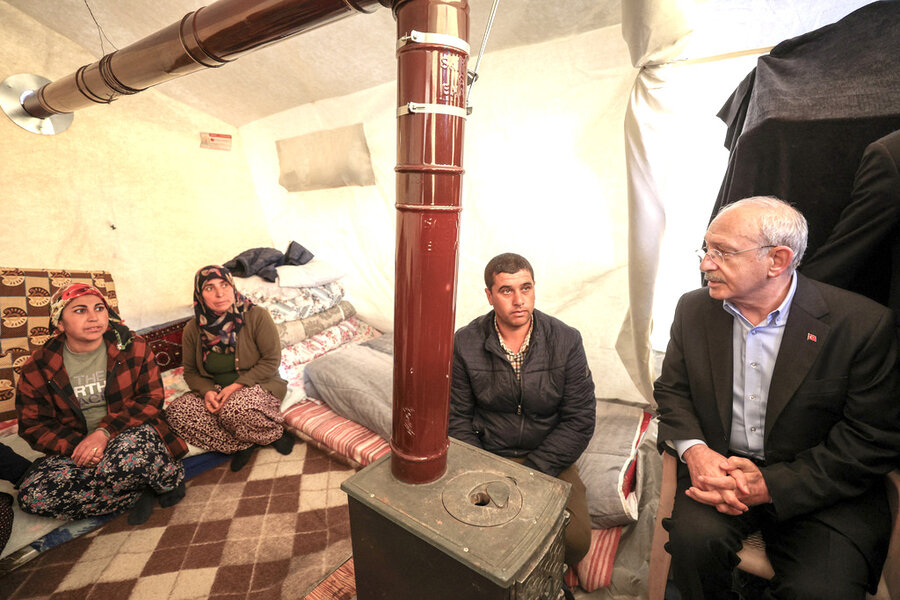Turkish delight in unity to save democracy
Loading...
Turkey has never seen anything like it. In a country where political parties proliferate like pomegranate seeds, six parties have formed an alliance and agreed on a joint presidential candidate for the May 14 elections. Just as remarkable is what unites them.
Despite issues like high inflation and a weak government response to recent earthquakes, the opposition bloc – which includes Islamists, secularists, nationalists, and leftists – has rallied around the restoration of rule of law and constitutional liberties. This is a result of President Recep Tayyip Erdoğan’s steady erosion of democracy through controls on the media, the judiciary, and the electoral process.
The new bloc – dubbed the “Table of Six” – is leading in almost every poll. “This is the first time that an alliance has been formed that unites almost all political currents in Turkey,” wrote political scientist Vedat Demir at the Free University of Berlin for Turkish Minute.
In a global context, the newly woven Turkish carpet of disparate parties may not be so unusual. Elevating the issue of democracy itself – above bread-and-butter issues, social policy, or national security – has become more common in countries where elected leaders have altered the mechanics of democracy to keep themselves or their parties in power. Nearly half of the world’s population lives in a democracy of some sort.
In Israel, for example, hundreds of thousands have protested for weeks to prevent the clipping of judicial independence by the government of Prime Minister Benjamin Netanyahu. Mexicans were out on the streets in February against government attempts to undermine the electoral authorities. In Brazil’s recent election, the winner, Luiz Inácio Lula da Silva, made clear to voters that democracy itself was at stake.
Democratic backsliding has evoked protests or new political alignments in countries from Tunisia to Thailand. In Turkey, the odd-bedfellows coalition shows just how much people can put aside disputes over everyday policy when the best way to resolve those disputes – democracy – is in jeopardy.





